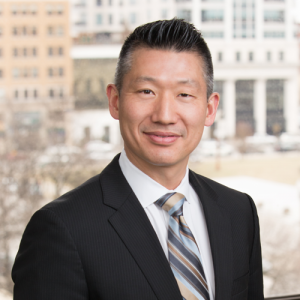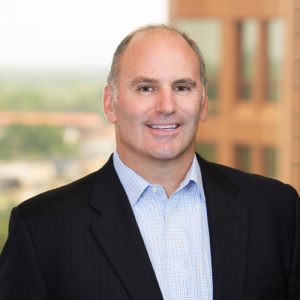The flu has recently made national headlines. This week, 41 states have seen widespread influenza activity, up from 31 states just the week before. Boston recently declared a public health emergency because of the flu, and mandatory flu shots made headlines when an Indiana hospital terminated six employees for refusing to get flu shots in violation of the hospital’s mandatory flu vaccine program. The employees claim their refusal was due to their religious beliefs. The hospital has denied that the employees’ religious beliefs were the reason they refused the vaccine. Many health care employers have implemented or are considering implementing mandatory flu vaccine programs, which the law does not outright prohibit. However, there are some pitfalls that should be avoided.
Is It Discrimination or Not? The EEOC Weighs In.
In an informal but very detailed discussion letter issued in March 2012, the EEOC responded to an employer’s inquiry about the application of Title VII of the Civil Rights Act to health care workers’ requests for exemption from an employer-mandated flu vaccination program. In a lengthy response, EEOC’s Legal Counsel Peggy Mastroianni references several prior EEOC publications addressing relevant legal standards. This letter serves as a reminder that a mandatory flu vaccine program creates many employment law issues that must be considered by health care employers.
Reasonable Accommodations and Vaccination Requirements
The EEOC points to its technical assistance document, entitled Pandemic Preparedness in the Workplace and the Americans with Disabilities Act (2009), when providing guidance on an employer’s duty to accommodate employees who may not be able to receive the flu vaccine. It states that an employer cannot compel all of its employees to take the flu vaccine and ignore employees’ medical conditions or religious beliefs. Rather, employees may be entitled to an accommodation (such as an exemption from taking the flu vaccine) due to a disability or sincerely held religious belief, practice or observance preventing the employee from taking the vaccine. An employer may not have to provide the accommodation, however, if it can demonstrate that providing an accommodation creates an undue hardship. The EEOC explains that facts relevant to determining whether an undue hardship exists include:
- The assessment of the public risk posed at a particular time;
- The availability of effective alternative means of infection control; and
- The number of employees who actually request an accommodation.
Scope of Covered “Religious Beliefs”
The EEOC reminds employers that both it and courts have “consistently found that Title VII defines religion very broadly to include not only traditional, organized religions . . . but also religious beliefs that are new, uncommon, not part of a formal church or sect, only subscribed to by a small number of people, or that seem illogical or unreasonable to others.” The EEOC notes, however, that social, political or economic philosophies and mere personal beliefs are not considered “religious” and thus not protected by Title VII.
The letter confirms that hospitals and health care employers are entitled to scrutinize a health care worker’s beliefs to determine whether it is a sincerely held religious belief entitling that worker to an exemption from a mandatory flu vaccine program. While the EEOC states that employers should “ordinarily assume that an employee’s request for religious accommodation is based on a sincerely held religious belief,” if an employer has “an objective basis for questioning the religious nature or the sincerity of a particular belief or practice, the employer would be justified in seeking additional supporting information.”
Employers should take note that the EEOC maintains that such “additional supporting information” need not come from a church official or member, but rather could be provided by others aware of the employee’s religious practice or belief. This is particularly true when such religious beliefs may be non-traditional, uncommon or new.
Employers Have Defenses
The EEOC also discussed whether hospitals could refuse to accommodate an employee’s religious objection if the employee had received vaccines in the past. The EEOC essentially said that it depends on the facts, referring to prior guidance that lists several factors that, either alone or in combination, may “undermine an employee’s assertion that he sincerely holds the religious belief at issue.” Those factors include:
- Whether the employee has behaved in a manner markedly inconsistent with the professed belief;
- Whether the accommodation sought is a particularly desirable benefit that is likely to be sought for secular reasons;
- Whether the timing of the request renders it suspect (e.g., it follows an earlier request by the employee for the same benefit for secular reasons); and
- Whether the employer otherwise has reason to believe the accommodation is not sought for religious reasons.
The EEOC reminds employers, too, that an employee’s beliefs may change over time, and therefore an employee’s newly adopted or inconsistently observed religious practice may nevertheless be sincerely held.
Pregnancy and Mandatory Flu Vaccine Programs
The Pregnancy Discrimination Act could be implicated by an employer’s mandatory flu vaccine policy. According to the EEOC, a pregnant employee denied an exemption from taking a required vaccine could bring a claim under Title VII if the employer granted non-pregnant or male employees an exemption, such as if they had a medical condition that prevented them from getting the vaccine. The EEOC says that such a claim “would obviously turn on the facts of the particular case.”
Alternative Infection Control Practices
Finally, the EEOC suggested that if an employer grants a health care worker an exemption from receiving the flu vaccine under a mandatory vaccination program, it may still impose upon that employee alternative infection control practices, including requiring the individual to wear a mask. However, such a requirement in lieu of taking the vaccine may only be done for legitimate, non-discriminatory and non-retaliatory reasons. Requiring an employee exempted from the vaccine due to a medical condition, religious belief or pregnancy to wear a mask, but not requiring other exempted employees to wear one, would likely be an unlawful practice.
What Does This Mean for Employers of Health Care Workers?
If a hospital or other health care entity has a mandatory flu vaccine program or is considering implementing a program, it must carefully consider all of the legal implications. This includes complying with Title VII protections in administering the program. Employers must consider an employee’s request for an exemption, particularly if it is based on the employee’s religious beliefs, medical conditions or even due to a pregnancy. In light of the EEOC’s position on this issue, employers should develop a process that will carefully and consistently evaluate each request in order to properly meet their obligations to the public as well as to the employees who serve the public.
A version of this article appeared in our HR Insights Blog on May 2, 2012 and was authored by Kevin Stella.
Should you have questions, please contact your regular Hall Render attorney or a member of our Employment and Labor Section:
| Steve Lyman | slyman@HallRender.com |
| Sam DeShazer | sdeshazer@HallRender.com |
| John Ryan | jryan@HallRender.com |
| Michael Kim | mkim@HallRender.com |
| Robin Sheridan | rsheridan@HallRender.com |
| Bruce Bagdady | bbagdady@HallRender.com |
| Craig Williams | cwilliams@HallRender.com |
| Travis Meek | tmeek@HallRender.com |
| Larry Jensen | ljensen@HallRender.com |
| Jennifer Gonzalez | jgonzalez@HallRender.com |
| Carrie Turner | cturner@HallRender.com |
| Jon Bumgarner | jbumgarn@HallRender.com |
| Kevin Stella | kastella@HallRender.com |
| Dana Stutzman | dstutzma@HallRender.com |
| Jon Rabin | jrabin@HallRender.com |
| Jennifer Richter | jrichter@HallRender.com |
| Natalie Murphy | nmurphy@HallRender.com |
| Mary Kate Liffrig | mliffrig@HallRender.com |
| Brad Taormina | btaormina@HallRender.com |
| Employee Benefits Attorneys: | |
| Fred Bachmann | fbachmann@HallRender.com |
| Bill Roberts | ebplans@HallRender.com |
| Tara Slone | tslone@HallRender.com |
| Calvin Chambers | cchambers@HallRender.com |














